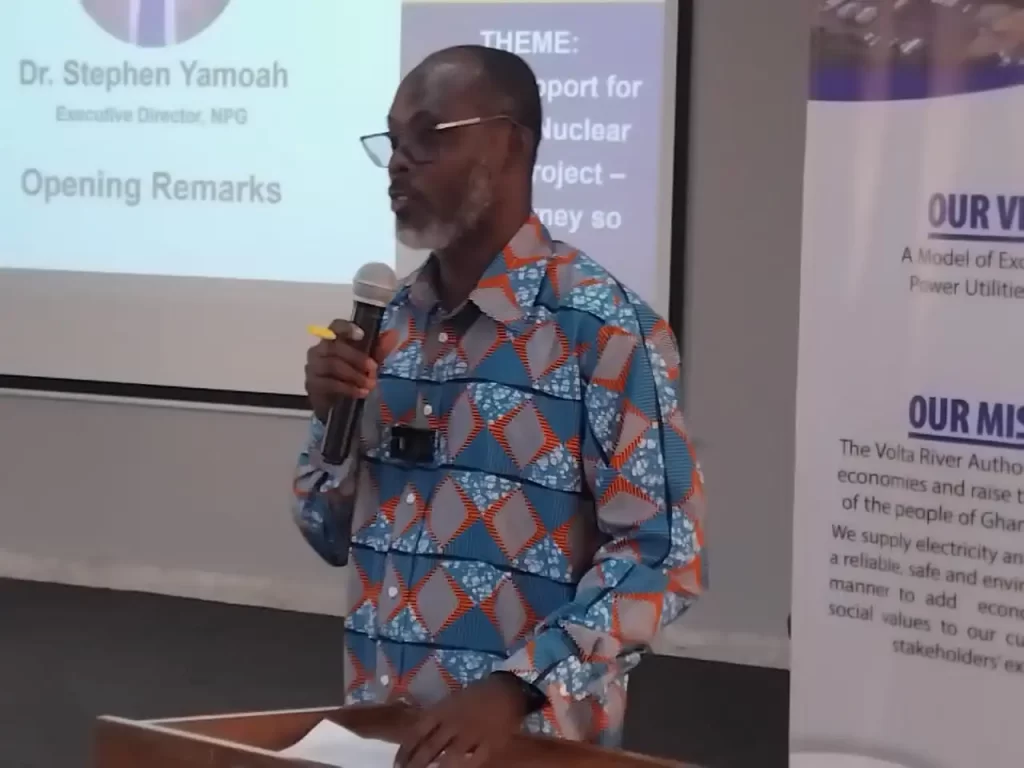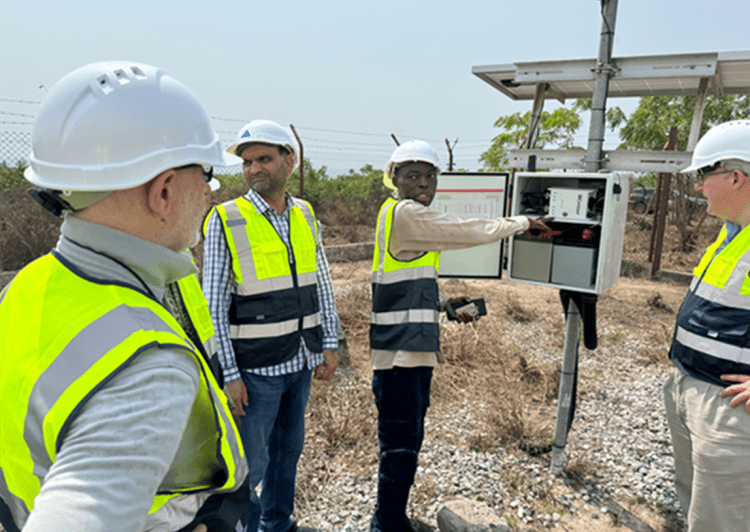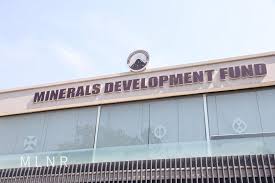An International Atomic Energy Agency (IAEA) team of experts has concluded an eight-day safety review of Ghana’s site selection process for its first nuclear power plant (NPP).
This marks a significant milestone in Ghana’s ambition to integrate nuclear energy into its power mix to enhance energy security, combat climate change, and diversify its energy sources.
The Site and External Events Design Review Service (SEED) mission, which evaluates the safety of nuclear plant site selection processes, was conducted in Ghana for the first time.
The SEED mission, led by Kazuyuki Nagasawa, Senior Nuclear Safety Officer at the IAEA, comprised a team of five international experts from Pakistan, Türkiye, the United Kingdom, and the United States, along with an IAEA staff member.
“We confirmed that both the implementing organization and the management system are well-designed with the support of the government and that the Site Approval Report has been systematically and thoroughly prepared.
“Ghana followed the IAEA safety standards while performing the site selection process.”
Kazuyuki Nagasawa, Senior Nuclear Safety Officer at the IAEA
Ghana has now successfully completed its site selection process and identified both a primary and an alternative site for its nuclear power plant. The identified candidate site is in the Western Region, while the alternative site is located in the Central Region.

With the conclusion of this phase, the country now moves to the site characterization stage, which involves detailed geotechnical, environmental, and safety assessments.
The SEED mission was carried out at the request of the Ghanaian government and hosted by Nuclear Power Ghana (NPG), which operates under the Ministry of Energy and Green Transition.
NPG has been leading the country’s nuclear power program, ensuring compliance with international safety and regulatory requirements.
During the mission, the experts conducted a thorough review of the site selection report, analyzing aspects such as siting criteria, data collection methods, and management processes. The team also physically inspected the identified sites to assess their suitability for a nuclear facility.
As part of the review process, the IAEA also conducted a SEED Capacity Building Workshop, which brought together local and international experts to discuss site evaluation methodologies and best practices.
NPG Commits to International Standards

NPG’s Executive Director, Stephen Yamoah, emphasized the importance of the IAEA’s involvement in Ghana’s nuclear journey, stating, “We acknowledge with deep appreciation the IAEA SEED mission’s technical assistance in assessing our site selection.”
“This mission is of great importance to our nuclear power program, as it ensures that our decisions are guided by international best practices for safe and secure development of nuclear power infrastructure.”
Stephen Yamoah, NPG’s Executive Director
The mission team commended Ghana’s leadership and management for safety throughout the site selection process, highlighting it as a good practice that should continue into subsequent phases.
With site selection now completed, Ghana will advance to the characterization phase, where detailed site investigations will be conducted to confirm the feasibility of constructing a nuclear power plant at the chosen location.
NPG will continue to receive technical assistance from the IAEA to ensure that all site approval processes align with the IAEA’s Specific Safety Guide on Site Survey and Site Selection for Nuclear Installations.
The final SEED mission report, containing a comprehensive evaluation and further recommendations, will be delivered to the Government of Ghana within three months. This report will play a crucial role in informing the next steps of Ghana’s nuclear power project.
The successful completion of the IAEA’s SEED mission underscores Ghana’s commitment to adhering to international safety standards as it progresses with its nuclear energy ambitions.
The continued collaboration between Ghana and the IAEA will be instrumental in ensuring the safe, sustainable, and efficient implementation of the country’s first nuclear power plant.
As the project moves into the site characterization phase, Ghana stands at a pivotal moment in its energy transition.
The final approval and subsequent construction of the nuclear plant will mark a transformative step in the nation’s pursuit of energy security, economic growth, and environmental sustainability.



















